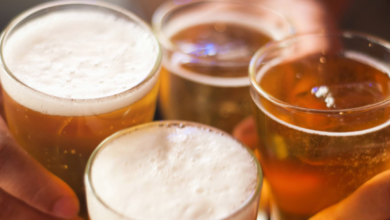The Growing Scourge of Illicit Alcohol in Sri Lanka
Sri Lanka, known for its stunning landscapes, cultural richness, and warm hospitality, faces a shadowy issue that threatens the wellbeing of its citizens and the nation’s economy: illicit alcohol. While the country is famous for its tea, cricket, and pristine beaches, beneath this appealing exterior lies the pervasive problem of counterfeit liquor. In this article, we explore the concerning rise of illicit alcohol in Sri Lanka and the reasons behind its proliferation, as well as the efforts being made to combat it.
Understanding the Pervasiveness
Illicit alcohol in Sri Lanka comes in various forms, including bootlegged arrack, counterfeit liquor, moonshine, artificial toddy, and homemade spirits.
- Bootlegged Arrack: Bootlegged arrack refers to illegally produced or distributed arrack, a traditional South Asian alcoholic beverage made from the fermented sap of coconut or palm trees. Bootlegged arrack is often produced without adhering to the necessary regulations and may be of poor quality and even dangerous due to lack of quality control.
- Counterfeit Liquor: Counterfeit liquor is fake or imitation alcoholic beverages that are made to resemble genuine branded products. These counterfeit products often use similar labels and packaging to deceive consumers but may contain substandard or even harmful ingredients. Counterfeit liquor poses significant health risks and can be toxic.
- Moonshine: Moonshine is a term used to describe illegally distilled or homemade spirits, typically without proper licensing or taxation. Moonshine is often produced in improvised or makeshift stills and may not meet safety and quality standards. It is often unregulated and can be unsafe for consumption.
- Artificial Toddy: Artificial toddy refers to a synthetic or adulterated version of toddy, a traditional alcoholic beverage obtained from the sap of palm trees. In the context of illicit alcohol, artificial toddy may involve adding chemicals or artificial flavorings to imitate the taste or effects of authentic toddy. This can be dangerous and is often illegal.
- Homemade Spirits: Homemade spirits are alcoholic beverages produced by individuals for personal use or in small quantities without proper licensing. While some homemade spirits are crafted with care and expertise, others may lack quality control, leading to potential health risks. The legality of homemade spirits varies by jurisdiction.
Top of Form
The proliferation of illicit alcohol can be attributed to a combination of factors:
- The High Cost of Legal Alcohol: One significant driving force behind the illicit alcohol industry is the excessively high taxes levied on legal alcoholic beverages. This results in legal alcohol becoming unaffordable for many, inadvertently pushing consumers toward cheaper alternatives, which are often poorly regulated and potentially harmful to health.
- Limited Access in Rural Areas: Inadequate access to legal alcohol in rural and remote areas is another key factor. The distribution networks for legal alcohol do not effectively reach these regions, leaving rural consumers with little choice but to seek out alternative, unregulated sources of alcohol, unwittingly exposing themselves to health risks associated with illicit liquor.
Startling Statistics
The growth of illicit alcohol in Sri Lanka is a cause for concern, especially when compared to the global alcohol industry. Data from the World Health Organization’s (WHO) Global Status Report on Alcohol, spanning from 2004 to 2016, reveals that the global alcohol industry grew by 50%. In stark contrast, the Sri Lankan alcohol industry expanded by a remarkable 95% during the same period, largely due to the dramatic rise in illicit alcohol production, which surged by an astonishing 300%.
Presently, the total alcohol industry in Sri Lanka is valued at over 250 billion rupees, with the illicit alcohol market constituting approximately 80 billion rupees. This means that the illicit alcohol market holds a substantial 37% share of the entire market, resulting in an approximate loss of 80 billion rupees in revenue for the Sri Lankan government.
Conclusion
Illicit alcohol poses a significant threat to public health, the economy, and the social fabric of Sri Lanka. The clandestine trade in counterfeit alcohol is not only perilous to consumers but also robs the government of crucial tax revenue. Measures including stricter regulations, enforcement efforts, and public awareness campaigns have been underway to address this problem, but many of those measures have now stalled due to various political interferences. It is crucial for Sri Lanka to address this problem comprehensively, not only by strengthening regulatory measures but also by addressing the affordability and accessibility of legal alcohol. Only through a holistic approach can Sri Lanka successfully combat the growing menace of illicit alcohol and pave the way for a safer, healthier, and more prosperous future for its citizens.

